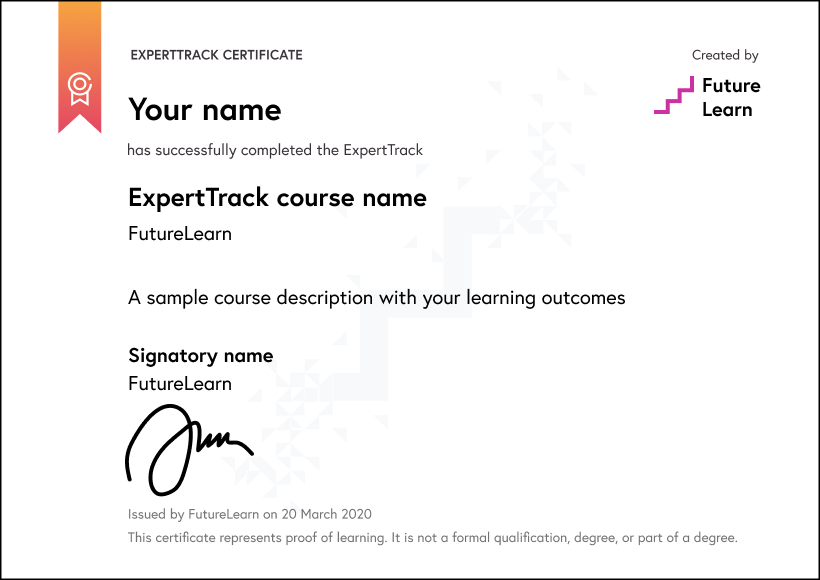Comprehensive Practical Bookkeeping Guide
Start the bookkeeping journey to develop key accounting skills
Bookkeeping is one of the most important aspects of running a business. Not only does it help you keep accurate records of your expenses and income, but it provides you with vital information that can help with budgeting, improve decision-making, and aid in cash flow.
On this ExpertTrack, you’ll understand how and why businesses need to maintain accounting records, and how these records end up creating a full set of financial statements.
You’ll gain a solid understanding of basic accounting as you learn about the essential business documents needed for finances. With this knowledge, you’ll learn how to carry out key accounting processes including double-entry bookkeeping.
Bookkeeping is the process of systematically recording and managing financial transactions of a business or organization.
It involves keeping a detailed, accurate, and organized record of all financial activities, including income, expenses, assets, liabilities, and equity.
The primary goal of bookkeeping is to create a clear and transparent financial picture of the entity's financial health.
Advantages of Bookkeeping:
Financial Clarity:
Bookkeeping provides a clear and accurate snapshot of a business's financial position, helping owners and managers make informed decisions.
Compliance:
Proper bookkeeping ensures compliance with tax laws and financial regulations, reducing the risk of legal issues or penalties.
Budgeting and Planning:
It allows for effective budgeting and financial planning by providing historical data and insights into income and expenses.
Business Growth:
With accurate financial records, businesses can secure loans or investments more easily, promoting growth and expansion.
Tax Efficiency:
Well-maintained books help businesses optimize their tax strategies, potentially reducing tax liabilities.
Prevention of Fraud:
Bookkeeping practices can help detect and prevent financial fraud or embezzlement.
Job Opportunities in Bookkeeping:
Bookkeeper:
A bookkeeper is responsible for recording financial transactions, maintaining financial records, and producing financial reports for businesses or clients.
Accountant:
While accountants perform a broader range of financial tasks, including financial analysis and tax planning, a strong foundation in bookkeeping is often a prerequisite for this role.
Certified Public Accountant (CPA):
Becoming a CPA often requires a strong background in bookkeeping. CPAs provide auditing, tax, and financial consulting services to businesses and individuals.
Financial Analyst:
Financial analysts use financial data, including bookkeeping records, to provide insights and recommendations for investment decisions, budgeting, and forecasting.
Financial Manager:
Financial managers oversee an organization's financial health, including budgeting, financial planning, and managing financial risks.
Consultant:
Bookkeepers with expertise in specific industries or software systems can work as consultants, helping businesses improve their financial processes.
Entrepreneurship:
Some individuals with bookkeeping skills choose to start their own bookkeeping or accounting firms, serving multiple clients.
Software Developer:
As technology plays a growing role in financial management, bookkeepers with programming skills may develop financial software and applications.
Bookkeeping is a valuable skill set with a wide range of job opportunities across various industries. As businesses and organizations continue to grow, there is a consistent demand for individuals with strong bookkeeping skills to ensure accurate financial records and compliance with financial regulations.
Learn how credit sales are recorded on financial statements
To develop your accounting skills, you’ll delve into non-cash transactions to understand the implications of credit sales and purchases.
By exploring these more advanced transactions as well as the role of VAT, you’ll gain knowledge of further considerations a business has to make on a daily basis.
Understand the importance of controls within an accounting system
Controls within accounting help reduce errors, ensuring the validity and reliability of the figures within your financial statements.
You’ll explore control accounts as well as the process of reconciliation to maintain the accuracy of your financial information.
Explore the banking system and payroll accounting
On the final course of this ExpertTrack, you’ll delve into other accounting functions such as payroll and the banking system.
You’ll learn banking terminology and the skills to help you navigate the banking system successfully before exploring payroll within a business.
Accurate payroll does more than pay your employees. It helps you calculate expenses, keep financial statements correct, and builds trust with your employees when they are consistently paid on time.
By the end of this ExpertTrack, you’ll have strong theoretical knowledge and the practical skills to ensure you know how to complete bookkeeping within any business context.
Experience required
This ExpertTrack is designed for complete beginners and requires no prior experience or knowledge.
You’ll start with the basics before moving onto intermediate and complex transactions and how you account for them.
Getting started
You’ll gain skills in bookkeeping and accounting which will help if you are new to business finance or if you have some prior knowledge that you wish to build on. It will also be useful if you are currently studying accounting or a related subject and wish to gain a practical viewpoint to ensure a sound understanding of concepts, theory, and application.
You’ll gain confidence and practical knowledge that you can apply in the workplace. This understanding will also be hugely beneficial if you have just started your own business and need to know how to create your own financial statements.
ExpertTrack course overview
Course 1
Course 2
Course 3
Course 4





Comments
Post a Comment